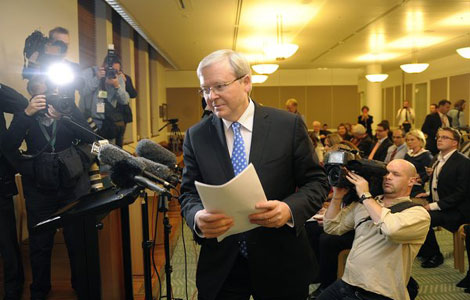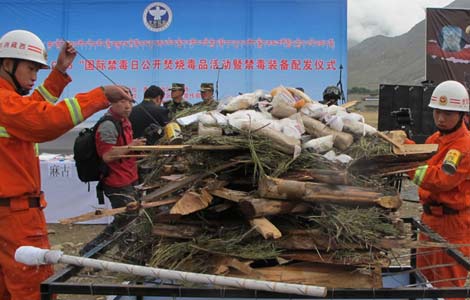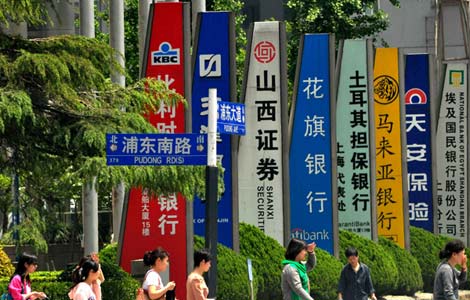Future points to carbon trading
Updated: 2013-06-14 02:17
By Lan Lan (China Daily)
|
||||||||
Challenges ahead
Setting standards and building the capacity of China's carbon market takes time, but the biggest hurdle might be China's sluggish energy pricing system reform.
Whether electricity rates are determined by the market will be a core concern of building a carbon market, said Dargin.
"Without a market-determined price, the imposition of a carbon price on power producers would have little impact as power producers are not allowed to pass on costs to end-users and resist absorbing these costs themselves," he said.
Carbon is a product that is closely linked to energy, but China's energy prices are still mainly controlled by the government. But this year the government has showed signs of accelerating its energy price reforms.
The National Development and Reform Commission in March launched a more market-oriented fuel pricing system to better reflect costs. Economists said relatively low inflation levels have provided favorable conditions for energy pricing reform.
The healthy development of the carbon market will eventually rely on reform of the energy pricing system, said Tang.
"It's difficult to (do things that) affect vested interests among energy groups, so starting the carbon market could be a force to help accelerate reform in the energy sector, but that also brings major challenges for China's carbon market," said Tang.
Also, integration among different markets will be a challenge, he said.
Local pilot projects may have some limitations such as small trading pools for suppliers and buyers, so the central government should allow them to extend trading with other regions, said experts.
Also, potential fraud must be monitored by regulators to ensure that the market has adequate oversight and transparency. As carbon exchanges open in various cities, information security must be monitored and made robust, said Dargin.
For instance, regulators shut down the EU's ETS after hackers stole more than 3 million carbon credits from government and private company accounts.
Furthermore, penalties for non-compliance must be clear. What are the penalties if emitters exceed their emissions caps and do not pay the levied fines? This needs to be clearly stated, said Dargin.

 Philippine, US start Naval exercise in S China Sea
Philippine, US start Naval exercise in S China Sea
 Supreme Court gay rights ruling celebrated across US
Supreme Court gay rights ruling celebrated across US
 Rudd returns as Australian PM after Gillard
Rudd returns as Australian PM after Gillard
 Brazil protests intensify before Confed Cup semifinal
Brazil protests intensify before Confed Cup semifinal
 Long lost weekend
Long lost weekend
 Park ready to charm China
Park ready to charm China
 Prices climb as police crack down
Prices climb as police crack down
 China 'most promising' in FDI
China 'most promising' in FDI
Most Viewed
Editor's Picks

|

|

|

|

|

|
Today's Top News
Proposed law puts curbs on family visas
Markets will stay volatile, continue to struggle: Expert
Promising outlook on US, China investment
US adoptees visit Chinese roots
Ecuador refutes Washington Post accusation
IBM to make Chinese job cuts
PBOC ends credit crunch, to go further
Snowden still at Moscow's airport, asylum pending
US Weekly

|

|







